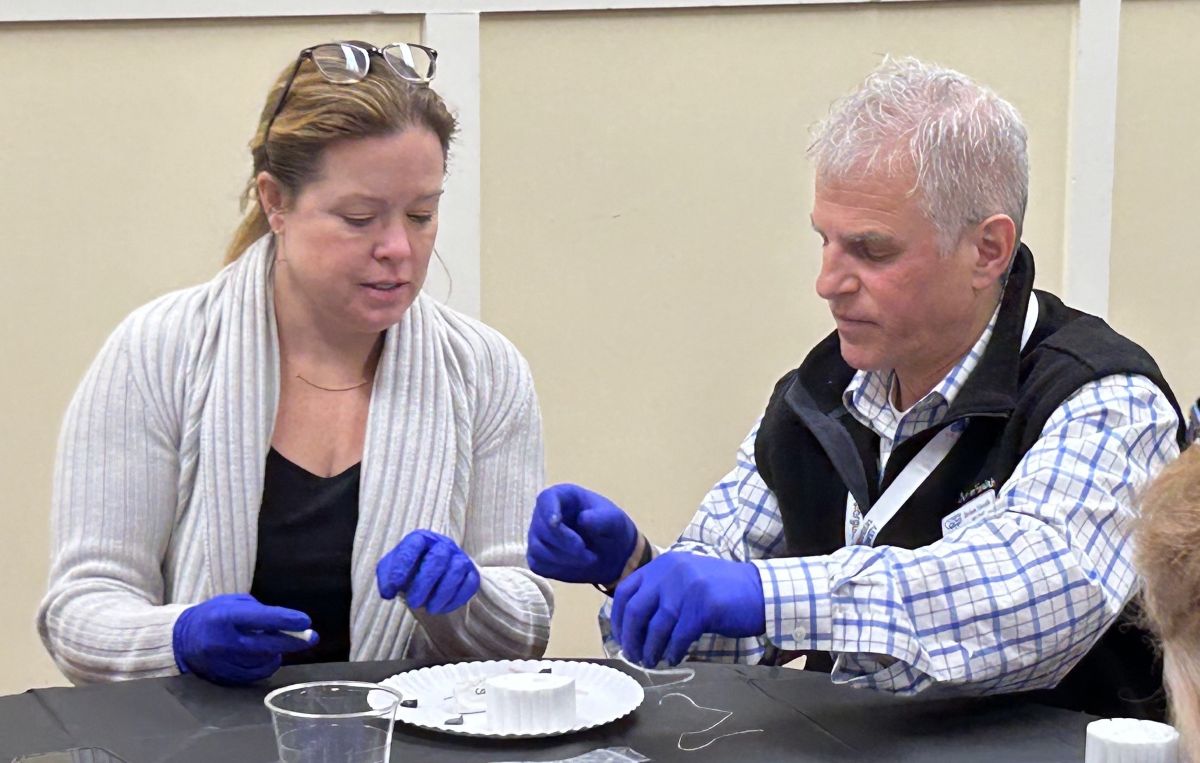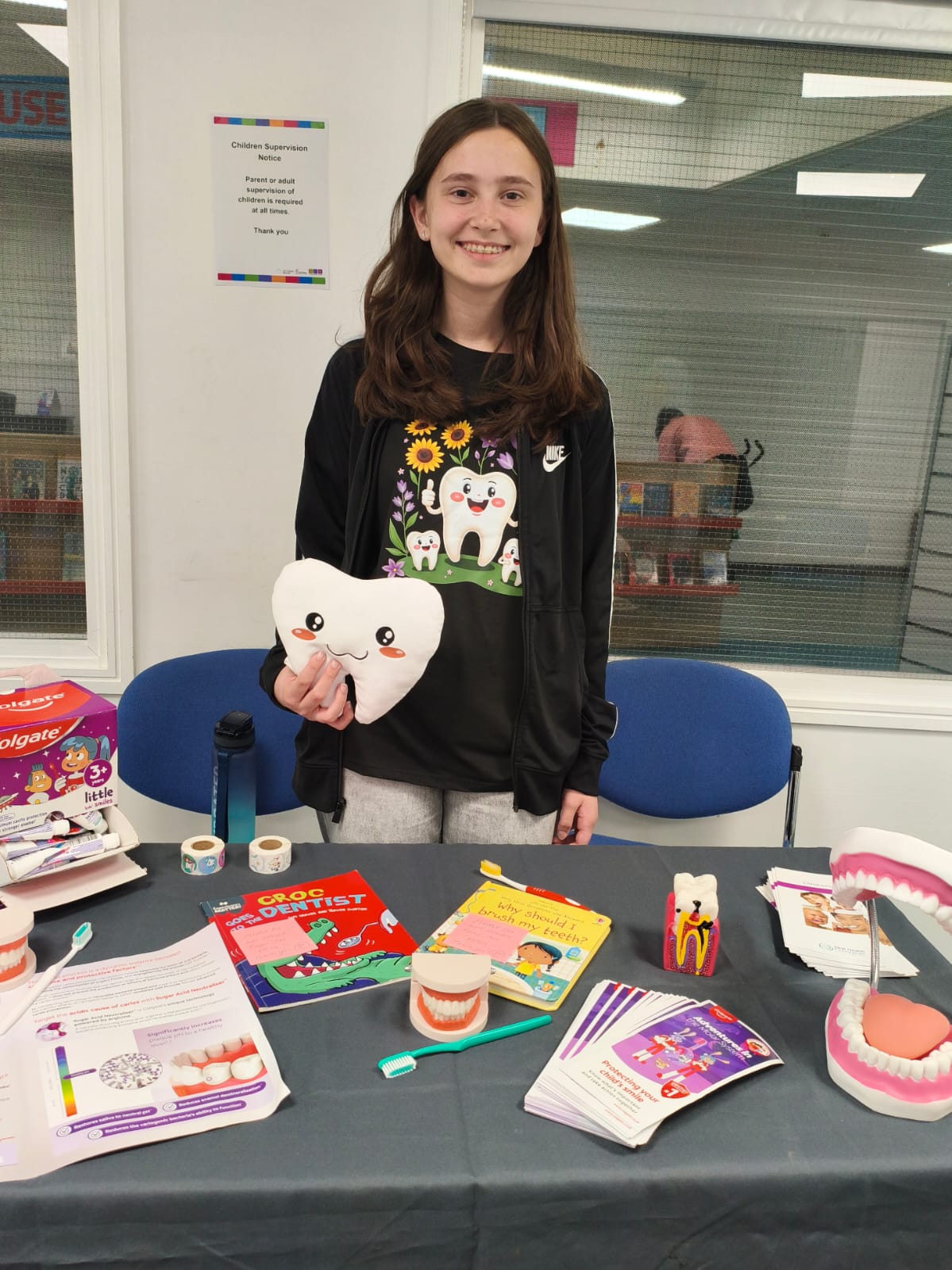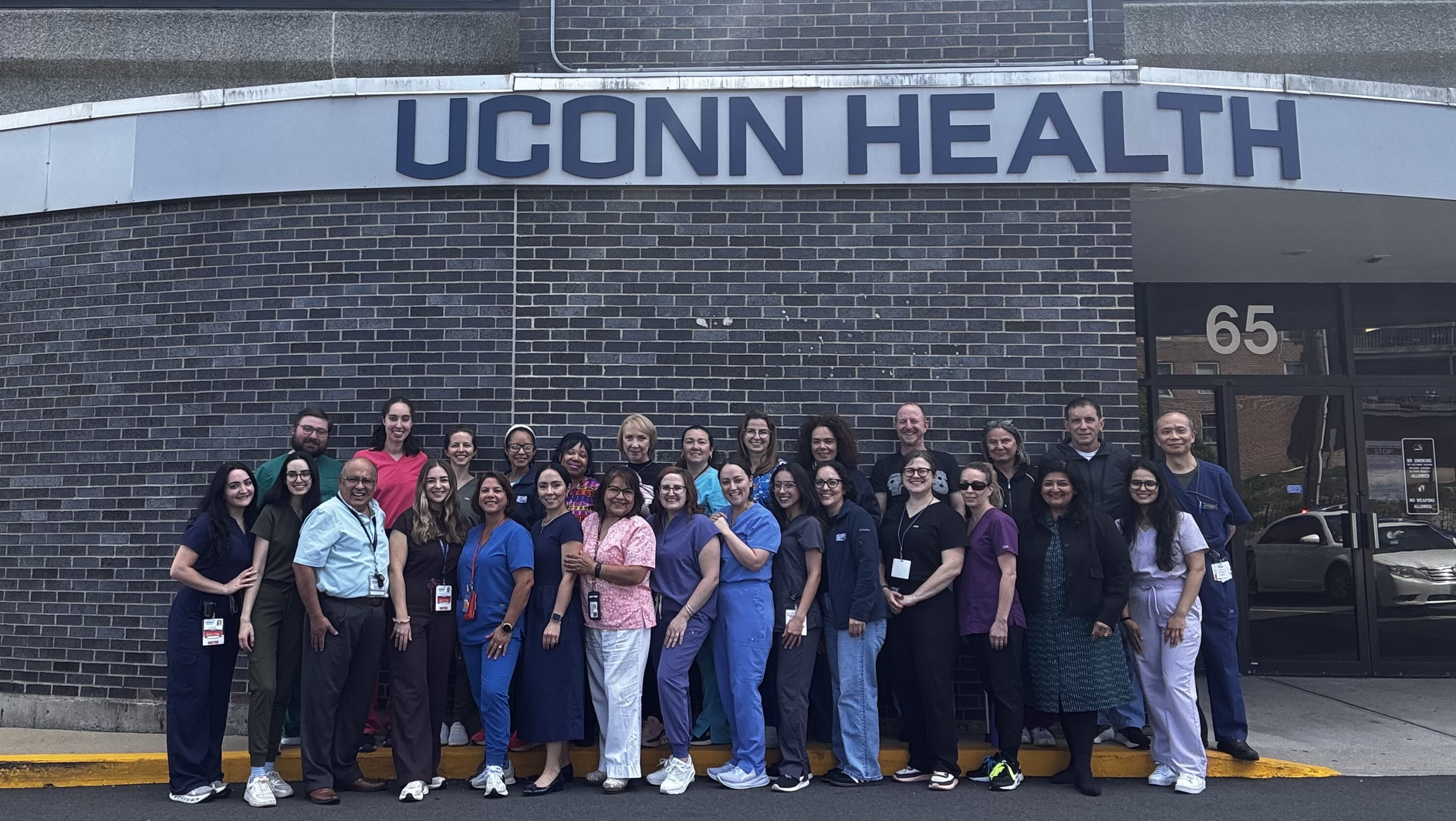
The BrainDash dashboard from a student perspective. (Photos courtesy Ceresant Solutions)
A 2-year-old Richmond-based company is about to go to market with its inaugural product as it begins its journey in a well-known startup accelerator program.
Ceresant Solutions is launching BrainDash, a mental health monitoring and protection program that will initially be launching to middle school students.
The program, which has an AI chatbot usable by students and a dashboard for counselors to track students’ mental health concerns, will start with a beta version in two private middle schools in Northern Virginia next month.
Ceresant Solutions was founded in 2023 by local entrepreneur Todd Feldman. He previously founded and spent four years as president of Rocket Factory, a Short Pump-based startup marketing firm that shuttered its doors in early 2024.
After struggling with two of his own bouts of depression over the past several years, Feldman began looking to start a company that could help others with their mental health, he told BizSense last week.
“After the second time I was like, ‘I don’t want anybody to ever feel this way,’” Feldman said. “Imagine we treated heart health by waiting for the heart attack to happen. That’s the way we treat mental health. We wait for an episode.”
That led him to launch Ceresant Solutions, which was first called Project Seismic, and later Seismic Wellness Labs when he incorporated in May 2023. The company was later renamed Ceresant for the combination of cere- and sant-, the Latin roots for “brain” and “health.”
Feldman began in 2023 reaching out to local academics, clinicians and members of organizations like Virginia Bio to see what gaps there were in the market for a preventive mental healthcare product.

Todd Feldman
At the time, Feldman had the idea to create a medical device that could be used in preventing mental health crises. But when he met Dr. David X. Cifu through a mutual contact at the end of 2023, the two hit it off, and Cifu suggested creating a digital mental health option instead.
Cifu, who now serves as Ceresant’s chief science officer, is also the associate dean for innovation and system integration and chair of physical medicine and rehabilitation at VCU’s School of Medicine, along with being a senior traumatic brain injury specialist at the U.S. Department of Veterans Affairs.
Also joining the core team is chief technology officer Todd Nemanich, who came on earlier this year. Nemanich has served in other data and technology roles in the past, according to his LinkedIn profile, including as the vice president of information technology at Virginia Beach-based Southern Trust Mortgage and as COO of local software development firm Terazo, which was later acquired by technology consultancy Zennify.
Feldman said Ceresant began focusing on students as its target demographic in late 2024, noticing that the need for mental health services can be particularly pertinent among young people.
“I was talking directly to heads of schools who said, ‘We’re having a hard time getting ahead of the problem, we have kids showing up to the office in tears. It’s an everyday struggle’…I’d never heard such a strong signal from the market,” Feldman said.
That realization led to today’s iteration of BrainDash. When students open their school-specific platform or dashboard on their computer, they can click on BrainDash’s “wellness buddy” on their homepage. Students can give the wellness buddy a name and an appearance, choosing from a series of animated, cute monster characters.
The wellness buddy, which is an AI chatbot made by Ceresant’s own large language model, will have the student take a once per semester “deep-dive” survey, which takes 15 to 20 minutes and asks a student questions related to happiness and mental health.
Questions include those like “In the last month, how often have you been upset because of something that happened unexpectedly?” and “In the last month, how often have you felt that things were going your way?”
Once a baseline screening is done, students can engage with the chatbot about how they are feeling and ask wellness-related questions. Nemanich said in an email to BizSense that the chatbot learns about students’ hobbies and interests through brief surveys, and can bring those up in conversation.
Over time, the wellness buddy prompts students to complete check-ins and screening regarding mental health in “student-friendly” language.
Nemanich noted that all BrainDash data is anonymized and encrypted. He added that the platform uses “active monitoring” to detect and block anomalies or cyberattacks.

BrainDash from a school counselor’s perspective.
“Just as important, schools set the AI guardrails. They can define how the wellness buddy handles sensitive topics, and when a student should be redirected to a counselor or trusted adult,” he said.
BrainDash’s other component is for school counselors. When counselors log into their BrainDash dashboards, they’ll see a wellness index that categorizes their students into “observe,” “monitor” and “intervene” (green, yellow and red) based on the students’ chats with their wellness buddies and the surveys they’ve taken.
The dashboard also shows counselors things like how long students chat with their wellness buddies and the percentage of them that have taken a certain survey.
“(We) started on the journey of a predictive, mental health risk-prevention platform early warning system, doing it through understanding the well established risk factors for mental health and behavioral health disorders and building a platform leveraging AI,” Feldman said.
Feldman declined to share the names of the first two schools using BrainDash, noting that he was not sure whether parents of those students had yet been notified. He also declined to share the cost of implementing BrainDash in schools, noting that price is determined by schools’ enrollment.
Feldman said Ceresant is targeting private schools, particularly middle schools, to implement BrainDash first. He noted the “long sales cycle” to public schools. Yet Feldman said Ceresant’s goal is eventually to implement in public schools, too.
“We’re launching with middle school first (as) our alpha cohort,” Feldman said. “We’re building a new product and want to be responsible with a narrow group, then will expand from there.”
Feldman declined to comment on the amount of money Ceresant has invested to get BrainDash off the ground. He said the company is in the midst of its first major capital raise, looking to raise $1.5 million to get “12 months of runway” for BrainDash to become fully deployed in more schools beyond its two launches this October.
“We see that raise as really important for us getting general availability for the next school year, 2026 to 2027,” he said. “(We’ve) certainly been bootstrapping to get to this place. … We did not need to spend a ton of money to get this off the ground.”
And with BrainDash set to launch and the company amid its first major raise, the startup also recently announced its acceptance to Creative Destruction Lab’s health and wellness startup accelerator.
Ceresant is the first-ever Virginia company to be accepted into the health and wellness stream of the accelerator, which begins in late October and runs through next May. Based at the University of Wisconsin-Madison, the accelerator pairs young companies in the health and wellness sector with mentors who help them set goals.
Ceresant is a team of four, including Feldman, Cifu and Nemanich, as well as a Boston-based chief product officer who joined the team about a month ago.
The company website states that Ceresant also has a four-member science advisory board and a team of four strategic advisers, which includes people like Odean Maye, angel investor with Cap Table Coalition and VentureSouth, and Todd Stansbery, who most recently served as the head of the lower school at St. Christopher’s School in Richmond.
Ceresant Solutions is based out of Gather’s Midlothian coworking location at 14321 Winter Breeze Drive.
link






More Stories
HEALTH IN THE KNOW: Free Training Empowers Students to Help in Mental Health Crisis
BU Offers Free Confidential Mental Health Screenings for World Mental Health Day Thursday | BU Today
The impact of physical exercise on college students’ mental health through emotion regulation and self-efficacy